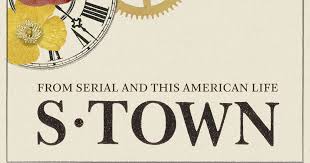 We live in an age of “big data” where in the business world, it’s increasingly all about metrics, analytics, algorithms, and achieving scale.
We live in an age of “big data” where in the business world, it’s increasingly all about metrics, analytics, algorithms, and achieving scale.
But more and more, when you look at some of the biggest successes – as well as the crashing failures – it can come down to one person. Whether managers, programmers, and CEOs listen to these single people can literally make or break a brand.
Take the recent United Airlines mess. Their treatment of passenger Dr. David Dao was seen by millions of people here in the U.S. and around the world. Everyone has a camera so whenever there’s any kind of incident, you can bet it will end up in social media.
The crazy part of this debacle was that it was preventable. For a few hundred dollars more, United would have been able to bribe the required  one passenger to walk off the plane. Instead, they mistreated a single passenger, and it’s costing them millions of dollars, as well as severe brand damage. These past two days, United’s stock price has been hammered by investors, and the conversation on social media has been predictably brutal. I’ve been in airports these past few days, and it’s all that people are talking about.
one passenger to walk off the plane. Instead, they mistreated a single passenger, and it’s costing them millions of dollars, as well as severe brand damage. These past two days, United’s stock price has been hammered by investors, and the conversation on social media has been predictably brutal. I’ve been in airports these past few days, and it’s all that people are talking about.
This incident calls into question United’s overall policy toward travelers, its spotty track record, and its ability to effectively compete in a tough industry.
One airline passenger.
Of course, the other side of the story is how United CEO Oscar Munoz reacted to the incident, not coming clean about his airline’s behavior toward one of its customers.
Rather than defuse this highly visible disaster, Munoz’s inability to finally admit fault only inflamed the situation. Finally, in his third statement, he apologized for the incident and vowed to “fix” the problem. It’s been five days and the bleeding has not stopped.
One tone deaf CEO.
The flip side of this story involves another CEO – Jeff Kirwan – who runs Gap. He received a letter from a 5-year old – Alice Jacob – suggesting  more clothing options that aren’t “just pink and princesses and stuff like that.”
more clothing options that aren’t “just pink and princesses and stuff like that.”
Kirwan took the complaint seriously, admitted Gap has shortcomings, and promised to consult with his designers to work on “more fun stuff that I think you’ll like.”
He wrote young Alice a personal letter, and used a simple complaint as the impetus to create a PR victory for his company, as well as serve his customers. And who knows – Gap Kids might just come up with a successful new line of clothing.
One 5 year-old.
And then there is the team at “Serial” (and “This American Life”). The first year for that podcast was historic. Many believe it helped boost podcasting’s overall posture as a bona fide audio content platform.
Unfortunately, the second season was lackluster, and was clearly a “sophomore slump” for the show. As our programmers know, one blowout could be an  anomaly, but a second could be interpreted as a downtrend.
anomaly, but a second could be interpreted as a downtrend.
So when the producers received an intriguing email from a guy in rural Alabama, they took it seriously. That led to returned phone calls, and a trip to the small town of Woodstock, AL.
And from there “S-Town” came to life. It’s a 7-episode podcast that’s fascinating, unpredictable, and at times, riveting. Even the producers didn’t seem to know where this story was headed when they first connected with John B. McLemore. And it’s all because someone bothered to return an email from an interesting character in the deep South.
As executive producer Julie Snyder told Mashable, “There’s not really any analysis or anything really in podcasting. There’s very little that you know, so you’re really going off of gut instinct.”
It may end up being the podcast of the year, and chances are, “S-Town” will once again elevate the conversation the value and virtues of on-demand programming.
One Alabama guy.
In each case, these events are actually about two people. The ones who initiated each encounter acted as the catalysts. But the big result came down to listening – or in the case of United, failing to listen. Not realizing that one person can bring down an entire company – or entirely remake or energize it – is a failure to understand just how quickly it all can change.
One person.
They are very likely lurking on the periphery of every company or brand reading this post. It could be an email, a social media post, or even a chance encounter at a station event. And those interactions could end up leading to bigger, more dynamic changes that can change the course of an entire company.
One person can impact millions, affecting billions of dollars, and the fate of businesses everywhere.
The power of one.
Thanks again to the many people who have reached out about the passing of Tim Davis. I heard from Kathy Davis last evening. She’s set up a means for friends and colleagues of Tim to contribute to their kids’ college funds.
If you click here, you can support either or both of their kids. For Xander (whose name appears as Robert), enter J2Z-J3V. For Alyssa, enter N3P-C07.
No flowers, but condolences can be sent to the family at 3008 Candide, McKinney, TX 75070. The family would like to thank everyone who has reached out during this very difficult time.
- What Is It With Female Robot DJs? - April 30, 2025
- Why “Dance With Those Who Brung You” Should Be Radio’s Operating Philosophy In 2025 - April 29, 2025
- The Exponential Value of Nurturing Radio Superfans - April 28, 2025




Excellent, True and a Big Thank You! Lead by example. “Broadcast Media Creates the Content. Digital Technology Delivers Your Message.” – Clark, Boston. http://www.broadcastideas.com
Thanks, Clark.